What are
AUDIO METADATA
METADATA?
Metadata are different information embedded within a file either a picture, video, audio file or else. They allow to store various information about the file such as its date of creation, creator name, length, name and more directly within the file.
In the music industry context, they allow to track artist & copyright information by tagging directly into the audio files informations such as Artist, Track, Album, Genre, Involved People, ISRC code…
The most common types of metadata retained in audio formats are: IDv3, ID3v2, Riff, Bwf, Cart, AXML, IXML, XMP.
Why are they useful?
They allow a better user experience by providing more information about the file.
They allow a better licensing/protection for example with the use of ISRCs & Copyrights fields in audio.
Even though it might be useless to embed metadata in a standard wav file since some aggregators won’t read it and will require you to enter it on the side; it doesn’t mean you shouldn’t do it at all.
Even just to “future-proof the files” as Justin Perkins sees it :
“At this time, very few consumer media players can display metadata in a WAV but this could easily change in the near or distant future.” – Justin Perkins
“Basic” Metadata
Artist name
Release title
Track title
Genre
Year
Artwork (see below for recommended dimensions)
See below for more complex metadata (complex at first glance only) such as ISRC, ISWC codes, etc.
Artwork
For optimal results and compatibility on every media players, please upload an artwork of:
– Maximum 1 Mb size to avoid adding anymore weight to file size,
– Between 600*600 and 900*900 pixels size is recommended,
– JPEG, JPG, PNG Accepted.
METADATA IN WAV FILE?
Contrary to the common belief, it is possible to embed metadata in Wav files thanks to the Bradcast Wav File (Bwf) extension. ISRC code can also be embedded in to the AXML chunk of the file.
This data isn’t read by all media players, but it might tomorrow. At Smart DSP we ensure proper embedding of your information and are happy to future proof your wav files by being able to tag the data into them as well.
ISRC Code
What is an ISRC?
” The International Standard Recording Code (or ISRC) is an identification system used around the world to catalogue all genres of sound recordings. An ISRC is a 12-character alphanumeric code/unique identifier (ie. US-S1Z-99-00001) assigned by a record label, distributor, or sound recording owner to a recording or audio file performed by an artist or band. It verifies the artist name, track title, album name, label name and Universal Product Code (UPC). The same ISRC applies to a recording whether it’s released as an MP3 or on a CD. Each recording should only have one ISRC, but one song can have multiple ISRCs if the song has been recorded, remixed or edited more than once. ” – Liane B.S.
How to read an ISRC?
An ISRC is a 12 characters unique code for each tracks.
Syntax:
Country two first letters
– 3 characters for your unique identifier
– 2 last characters of the actual year
– 5 digits for the track number of this year with this unique identifier.
(Meaning each year you start back at 00001 and until the end of the year, increment by one for each new track -even just a remix or edit should have a different ISRC).
Example: CA-AMZ-20-00001
Example syntax:
– CA for CANADA
– AMZ being the unique identifier you receive from the national agency
– 20 for 2020
– 00001 for the first track with this unique identifier AMZ
Who should get them?
The master rights owner of any sound recordings or videos (usually the record label or independent artist).
The person/company who distributes the track and owns the copyrights should get the ISRCs for the project they release & distribute.
Following your distribution platform, your aggregator might provide ISRCs for you nowadays.
How to get them?
Browse the full list of national agency contacts in charge of ISRC to find the one for your country.
SCPP acts as the French administrator for ISRC codes.
Currently out of stock of ISRC unique identifiers, they will provide you directly ISRCs codes upon track registration.
CONNECT Music Licensing acts as the Canadian administrator for ISRC codes on behalf of Music Canada.
Will provide you with a unique identifier and you will be able to create your own ISRCs from then on.
USISRC acts as the American administrator for ISRC codes for US registrants.
ISWC
What is a ISWC?
An ISWC is a unique 10 character code assigned to a musical work or composition. ISWCs are recognized globally as the unique standard for world-wide identification of musical works. So, just like an ISRC, an ISWC represents a unique identification number used to separate your musical work/composition from all other similar works.
ISWC codes are used to identify information such as:
- Song title
- Songwriter(s)
- Music Publishers
- Song splits
Remember that each musical work/composition can only ever have one ISWC code attached to it, and this code should never be reused to represent other musical works/compositions.
“However, while only one ISWC code can be attached to each musical work, that same musical work can have multiple ISRC codes attached to it. This is because the ISWC code represents the underlying composition, while the ISRC code represents the sound recording. So, for example, someone records your original composition and then goes on to create a remix of that song as well as a karaoke version. In total, there are now three separate sound recordings-the original recording, the remix and the karaoke version. Each recording is assigned its own ISRC code. However, they all came from the same musical work. As a songwriter, you are entitled to a share of each and every sound recording that stems from your original work. So, while you may only have one ISWC for your composition, this ISWC will be embedded into multiple sound recordings each with their own unique ISRC codes. This is why, within your Songtrust account, we allow you to enter in any amount of ISRCs with your composition, but only allow one ISWC submission.” – Songtrust
What is an ISWC composed of?
“An ISWC begins with the letter “T”, followed by a nine-digit unique number (from 00000001 to 999999999), and an additional check digit at the end. (Written Format: T-345246800-1). ” – ISWC.org
Who should get them?
“If you write your own music and plan to release it publicly, you need an ISWC. This is because the ISWC not only separates your composition from all others, but it also helps link that composition back to yourself and your publisher so people know who needs to be paid when that composition is commercially used. ” – Songtrust
How to get them?
See details of your national agency : http://www.iswc.org/fr/agencies.html
UPC/EAN Codes
UPC (Universal Product Code) or EAN (International Article Number) codes are just a 12 (UPC) or 13 (EAN) digits barcode. This code needs to be printed on the sleeve so that it can be scanned. It’s also common practice to tag this code on the CD (DDP image).
You can get buy some from various places online and even directly from some aggregators.
Only the publisher/distributor of the track should issue the barcode.
If you are an artist planning to release this track via a label, you don’t need one.
Learn More!
Browse more articles below
2 reviews for Mastering (1 Track)
Only logged in customers who have purchased this product may leave a review.



Guilou (verified owner) –
Great quality. Great communication and feedback.
They give a professional touch to your track while still taking into account all your wishes and demands.
I recommand !
Beat Blender (verified owner) –
I had a mastering from DSP and i have to tell you that this guy knows what he does. The analysis of my mixdown was really to the point, i changed what he suggested and it my mixdown was really a REAL mixdown.
The mastering itself was also sublime, of course every body has his own wish but the change of the track was done also if he made the track himself.
I’m a big fan. Keep up the good work Evan.